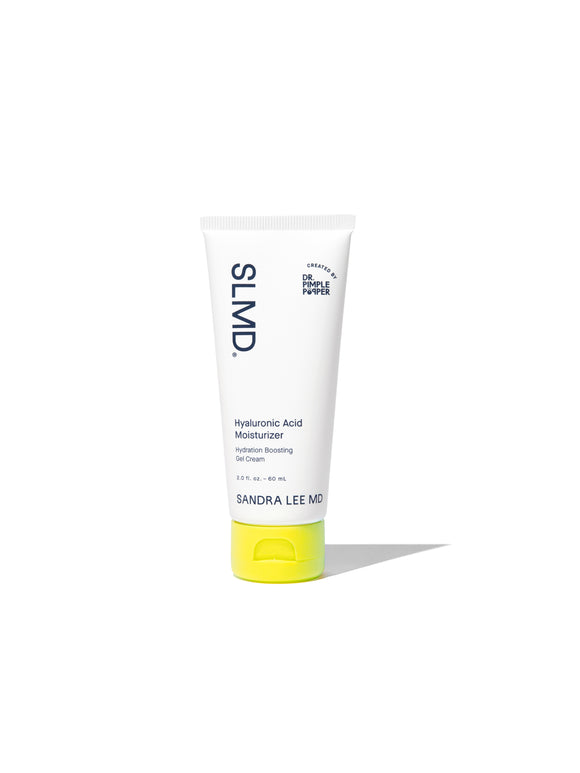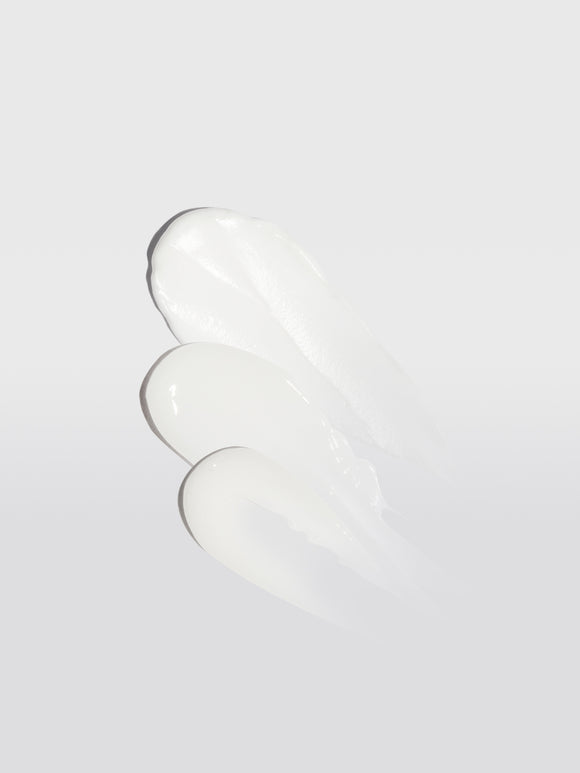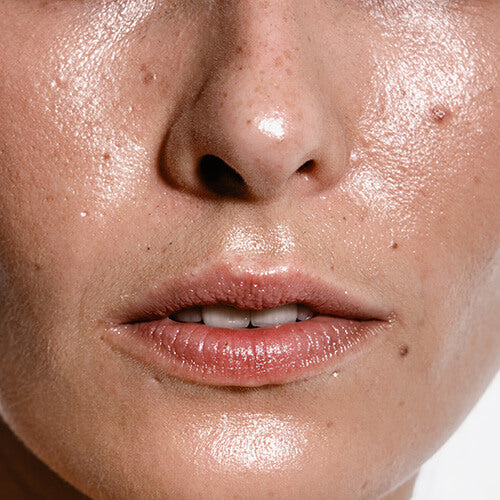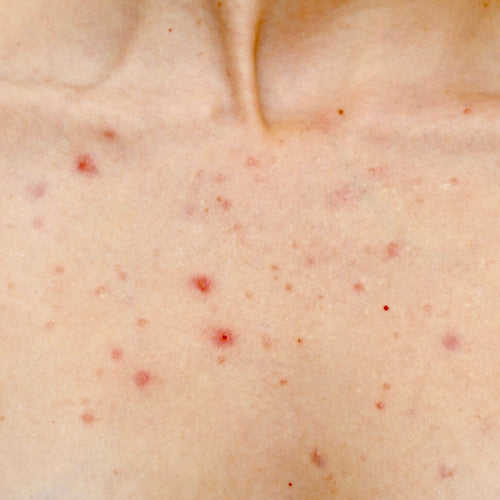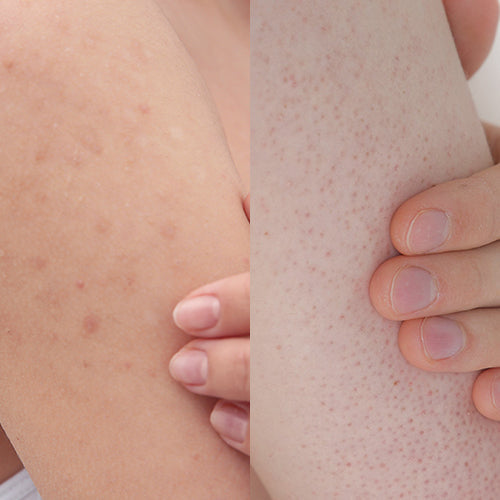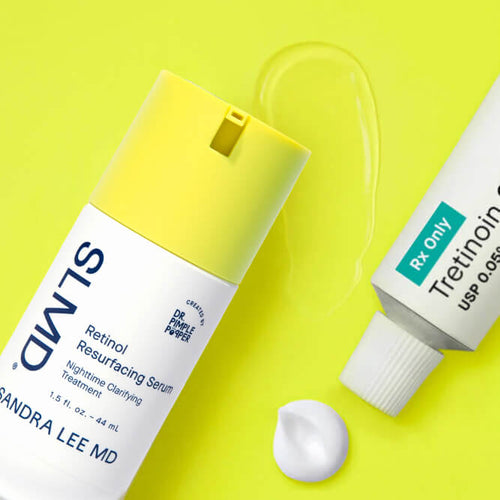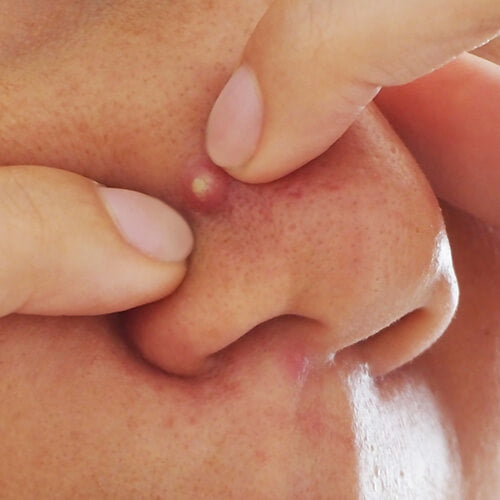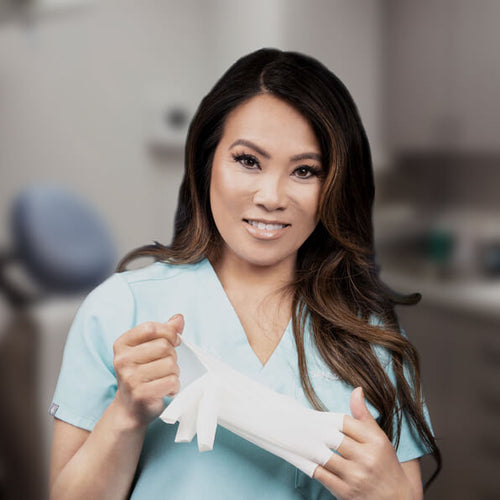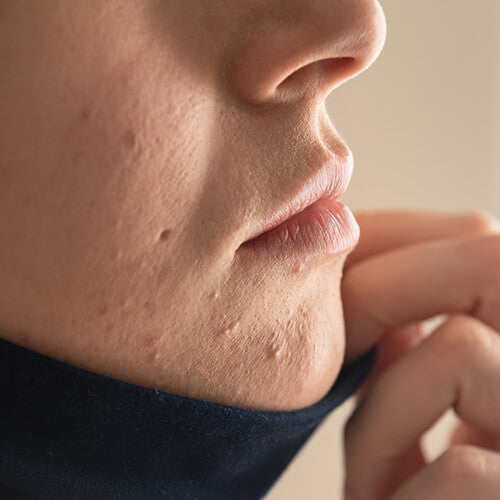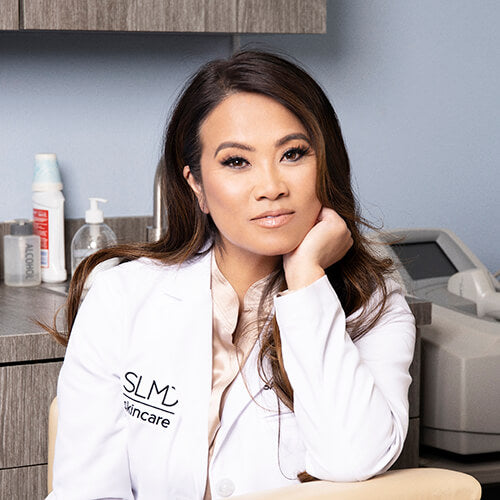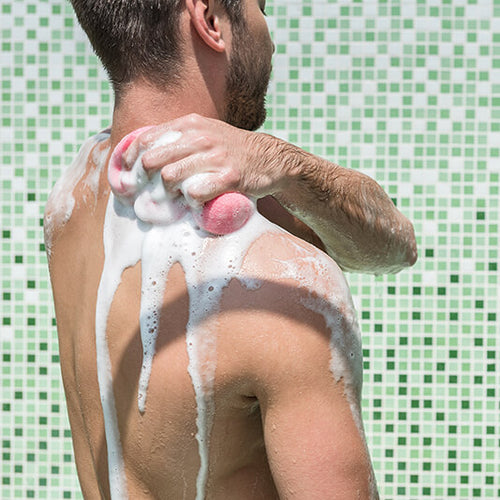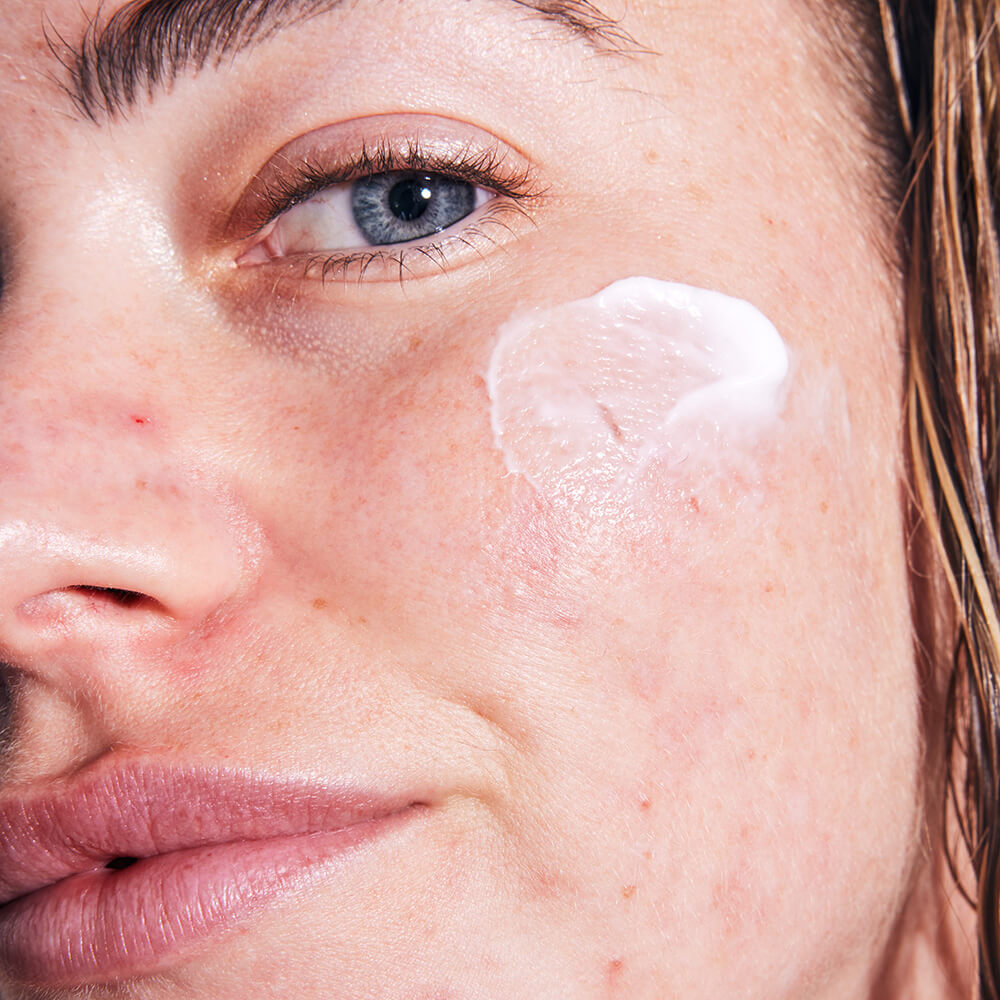
Hyaluronic Acid for Acne: How It Helps (and How to Use It)
Why hydration is key when you're treating breakouts — explained by Dr. Pimple Popper.
Published:
2 minute read
If you’re treating your acne, chances are you’re familiar with powerhouse ingredients like salicylic acid, benzoyl peroxide, and retinol. These treatments are essential for targeting breakouts — but they can also leave your skin feeling dry, tight, and irritated.
That’s where hyaluronic acid comes in. According to dermatologist and SLMD Skincare founder Sandra Lee, MD (aka Dr. Pimple Popper), adding this hydrating molecule to your routine can make a real difference — not by clearing breakouts directly, but by supporting your skin's natural balance and resilience.
Here’s how hyaluronic acid helps when you’re dealing with acne.
How hyaluronic acid supports acne-prone skin
#1 It restores water balance
Hyaluronic acid is a humectant — meaning it attracts and holds water. Dr. Lee explains that maintaining proper water balance is critical for a healthy skin barrier, which acts as your body’s frontline defense against irritation and infection.
A compromised barrier gives C. acnes bacteria a better chance to multiply, worsening breakouts. Plus, many acne treatments — especially benzoyl peroxide — can dry out your skin. Layering a humectant like hyaluronic acid into your routine can break this cycle, reducing irritation and supporting healing.
#2 It hydrates without clogging pores
When your skin is oily or acne-prone, you need hydration — without heaviness. It’s important to remember the difference between hydrators like hyaluronic acid and moisturizers when choosing products for acne-prone skin:
- Hydrators attract water
- Moisturizers add oils to seal hydration in
Since excess sebum (oil) plays a major role in acne formation, Dr. Lee recommends focusing on lightweight, humectant-rich products that won't clog pores.
SLMD Skincare to try: Hyaluronic Acid Moisturizer, part of the 3-step Acne System
#3 It helps regulate oil production
It might sound counterintuitive, but over-drying your skin can actually trigger more oil production. Dr. Lee explains that when the skin senses dehydration, it signals the sebaceous glands to produce more sebum — leading to clogged pores and more breakouts.
By keeping your skin properly hydrated with hyaluronic acid, you help maintain balance — which can help prevent the overproduction of oil.
Dr. Pimple Popper's Hyaluronic Acid Recs
#4 It soothes and supports healing
If you deal with inflammatory acne (think red, swollen pimples), calming your skin is crucial. Studies show that hyaluronic acid has anti-inflammatory properties and can accelerate wound healing, making it ideal for soothing irritated, acne-prone skin.
This added support can also help minimize the risk of post-inflammatory hyperpigmentation, a common concern after pimples heal.
How to add hyaluronic acid to your acne routine
Dr. Lee recommends layering a lightweight hyaluronic acid product underneath your acne treatments to minimize irritation and dryness.
Best way to use it:
- Cleanse skin thoroughly
- Apply hyaluronic acid to slightly damp skin
- Follow with acne treatments (like benzoyl peroxide or retinol)
- Seal with a non-comedogenic moisturizer if needed
For more reasons why hyaluronic acid deserves a spot in your skincare routine, check out Dr. Lee’s guide.
SLMD Skincare to try: Hyaluronic Acid Moisturizer, Clear & Calm Duo, Head to Toe Glow Bundle
FAQ: Hyaluronic acid and acne
Q: Can hyaluronic acid treat acne directly?
A: No — it doesn’t kill acne-causing bacteria or clear clogged pores. It supports your skin’s healing and barrier function, which is important when treating breakouts.
Q: Can hyaluronic acid clog pores?
A: Pure hyaluronic acid is non-comedogenic, meaning it won’t clog pores. Just be sure to choose lightweight, oil-free formulas.
Q: Can hyaluronic acid make acne worse?
A: Rarely. If it’s combined with heavy occlusives or oils, it could trap bacteria or clog pores — but on its own, it’s generally very safe for acne-prone skin.

Dr. Lee's Last Word
When you’re treating acne, it’s easy to focus only on ingredients that fight pimples. But hydration is just as important. Supporting your skin barrier with a humectant like hyaluronic acid can make all your other treatments work better — and help your skin feel calmer and healthier in the process.



